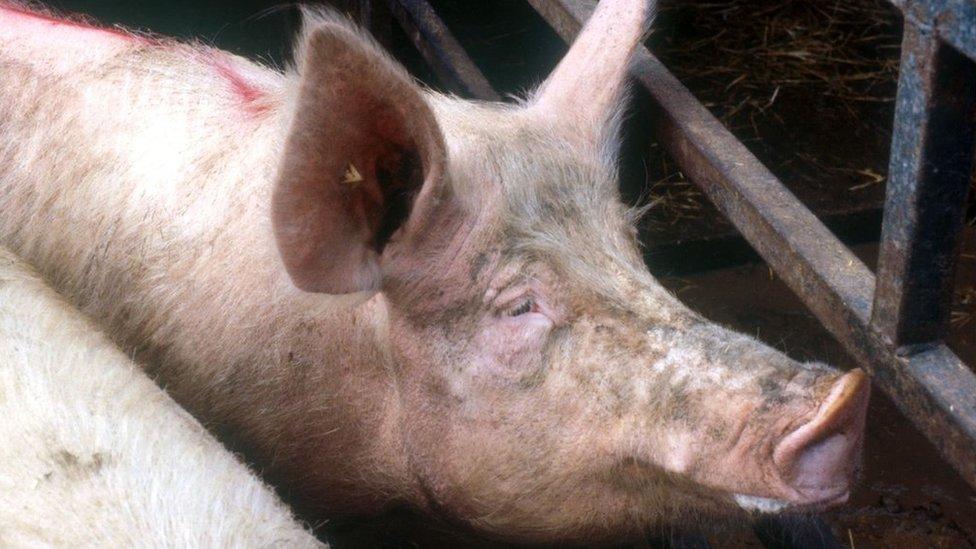Dover: Concerns over disease as food check centre moved
- Published
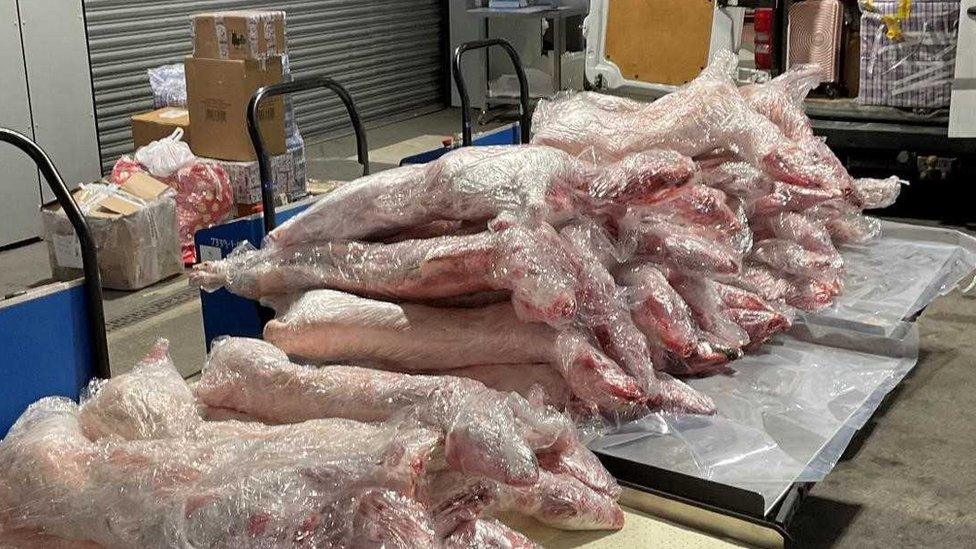
Sheep carcasses are among the illegal meats being seized at Dover
A group of MPs has raised concerns that funding cuts and the relocation of a food check centre could raise the risk of diseases like African swine fever spreading in the UK.
Spot checks on food imports are being moved from the port of Dover to Sevington, 22 miles (35km) inland.
Funding cuts of 70% are also being made to food checks, which the group chair said could be "catastrophic".
The government said it was confident the checks mitigated biosecurity risks.
A department for the environment, food and rural affairs (DEFRA) spokesperson said: "We have strict border controls in place to protect food and animal health safety - and these, along with our high biosecurity standards, remain unchanged."
In recent weeks, port health officials have raised fears over disease spreading through illegal pork meat.
They are concerned African swine fever could enter the UK and said they were "barely scratching the surface" of banned meat entering at Dover.
In a letter to secretary of state, the environment, food and rural affairs committee chairman Sir Robert Goodwill said: "The inland border facility at Sevington will require vehicles to travel 22 miles unsupervised across Kent, presenting potentially serious biosecurity risks, but also compromising compliance.
"We understand that drivers will be under no obligation to go to Sevington, if asked to do so.
"As such, we have real and reasonable concerns about the geographic dislocation of the inland border facility from the point of entry."
Sir Robert also raised the issue of funding cuts of 70% being proposed for the spot checks.
He said the Dover Port Health Authority had told him the cuts would have a "catastrophic effect" on UK biosecurity.
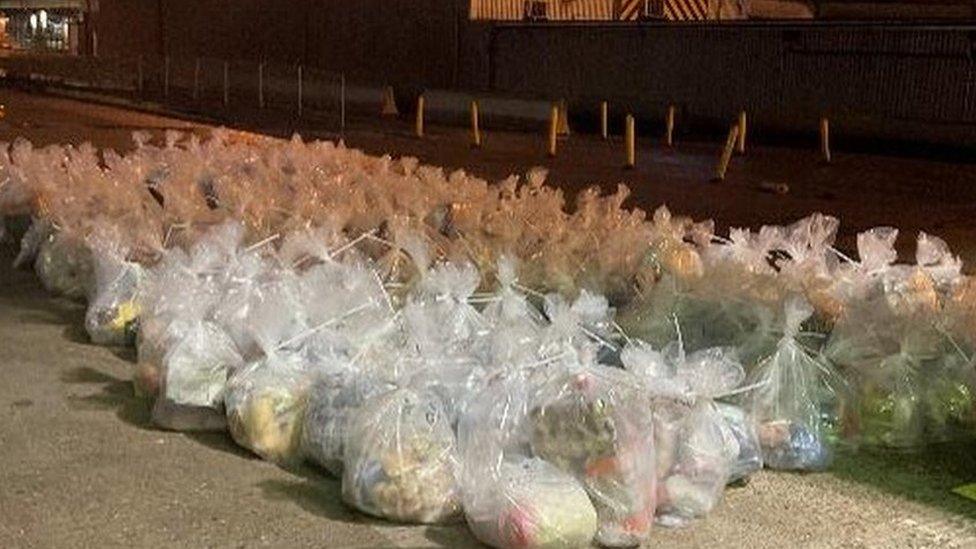
Authorities in Dover say they are seizing illegal meat by the tonne
Existing checks were introduced in September 2022, when it became illegal to bring pork and pork products weighing more than 2 kg (4.5 pounds) into the country, unless produced to the EU's commercial standards.
Over 57 tonnes of illegal meat has been seized at the port since then.
The committee's letter has been sent on the day new post-Brexit controls on food and farm imports have come into force.
DEFRA said: "We are confident Sevington will have the necessary measures in place to appropriately mitigate biosecurity risks that relate to this facility being located away from the point of entry."
Sir Robert has asked Mr Barclay to respond to the committee's concerns by 16 February.

Follow BBC South East on Facebook, external, on X, external, and on Instagram, external. Send your story ideas to southeasttoday@bbc.co.uk, external.
- Published31 January 2024
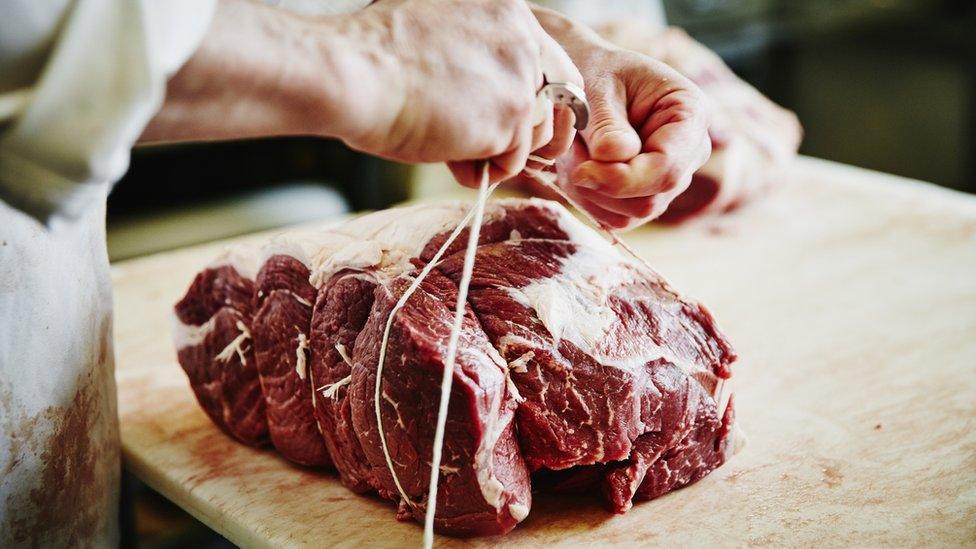
- Published30 January 2024
- Published16 January 2024
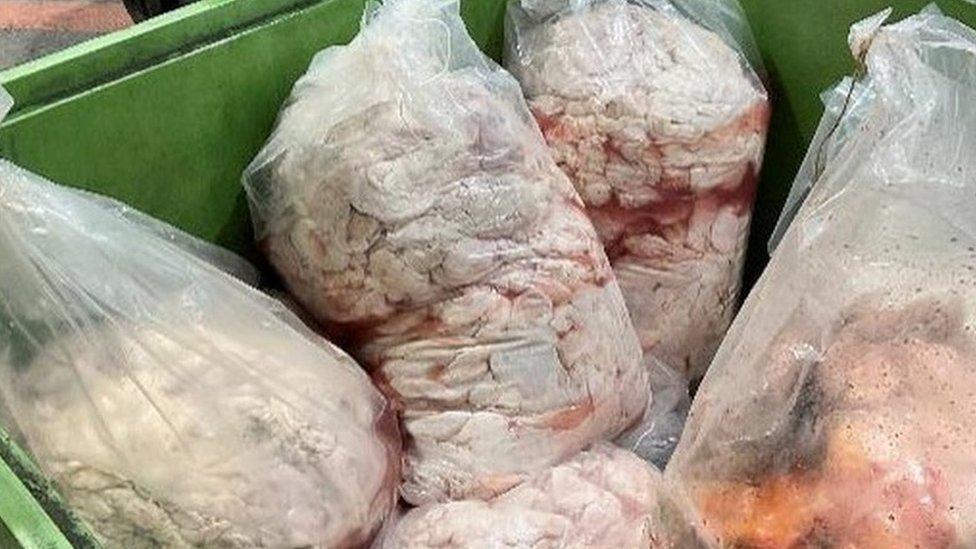
- Published2 December 2022
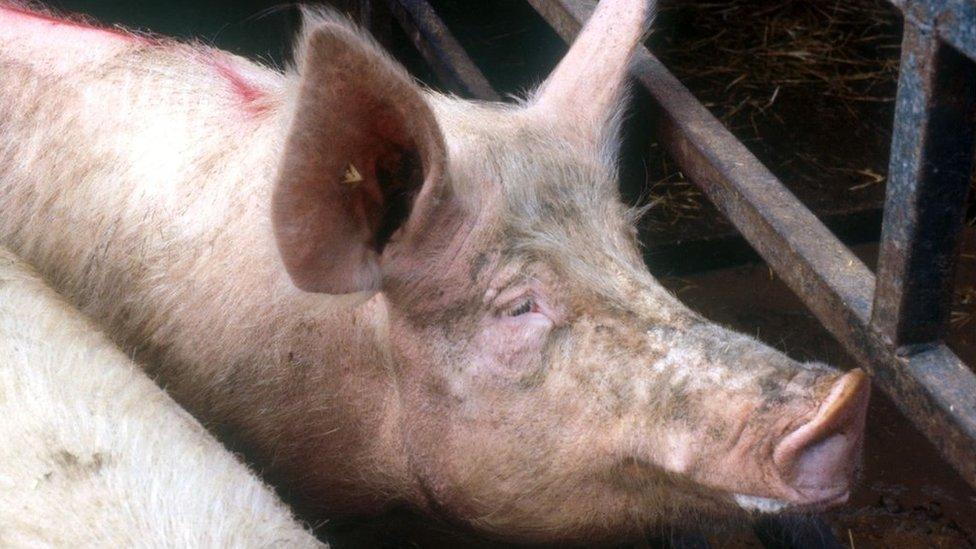
- Published15 November 2022
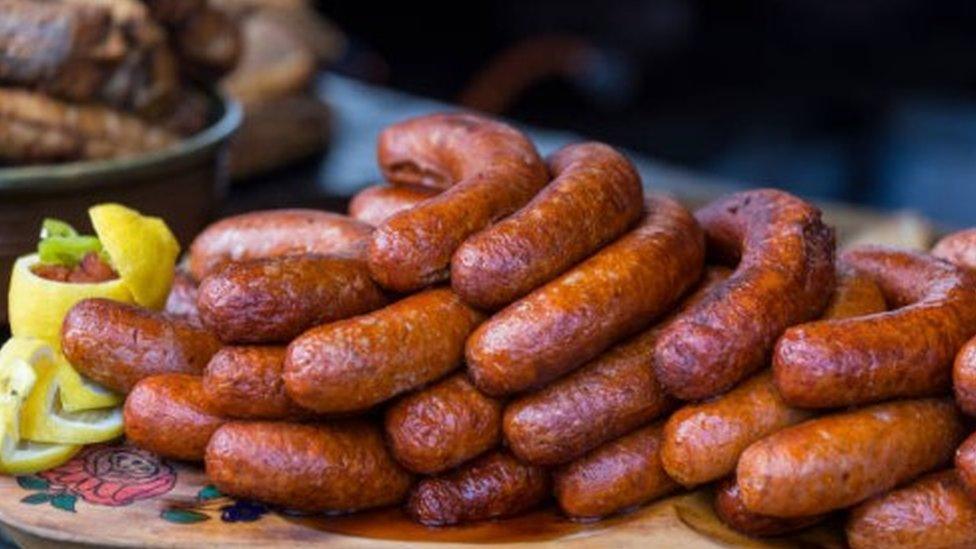
- Published1 September 2022
